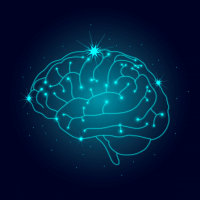
What was the review about?
Acute ischaemic stroke is a sudden loss of blood circulation in a specific brain area, caused by a blockage in one of the blood vessels, promoting neurological damage. Urgent (recanalisation) treatment to remove the blockage can be beneficial. We wanted to know whether the type of anaesthesia used for this procedure influences treatment to restore blood flow after blood vessels are blocked (recanalisation therapies).
What are recanalisation therapies and anaesthesia types?
Recanalisation therapies use different approaches to restore blood flow. This can be done by using different devices to remove the blockage from the large arteries that supply the brain. The procedure can be performed under different types of anaesthesia. General anaesthesia – complete medicine-induced anaesthesia followed by supporting breathing (where the person is 'put to sleep'); local anaesthesia – the medicine is directly applied only to a small specific area, providing pain relief; conscious sedation anaesthesia – medicines are given to make the person feel drowsy and relaxed and then carefully monitored, and monitored anaesthesia care – a specific type of anaesthesia service requested by the anaesthesiologist for the care of a patient undergoing a procedure that may fluctuate between the different levels of sedation anaesthesia (i.e. minimal, moderate, and deep).
What did we want to find out?
We wanted to know what type of anaesthesia approach promotes better patient outcomes during recanalisation therapies for acute ischaemic stroke.
What did we do?
We searched for studies that compared different types of anaesthesia for endovascular interventions (where catheters are inserted in small incisions in the groin or arms, and are guided through the blood vessels) in people with acute ischaemic stroke. We compared and summarised their results, and rated our confidence in the evidence, based on factors such as study methods and group size. We included trials that compared general anaesthesia with any other anaesthesia type in people who received recanalisation therapies in acute ischaemic stroke. Studies could have taken place anywhere in the world and participants could have been of any age as long as they received an endovascular recanalisation therapy for acute ischaemic stroke under any anaesthesia type.
Search date: 21 March 2022
What we found?
We found six trials, involving 982 people, in hospitals in high-income countries including China (three), Denmark (one), France (one), Germany (one), and Sweden (one). We pooled the results when appropriate.
People treated with general anaesthesia had more artery recanalisation compared to non-general anaesthesia in the short term. General anaesthesia did not change functional wellness and death compared to non-general anaesthesia in the long term.
Reliability of evidence
We have either little or moderate confidence in these results because, in most studies, it was possible that researchers collecting information about the outcomes of surgery knew which type of anaesthetic people had been given. This could have influenced their assessments. Also, a small number of trials were included with a small population. Furthermore, the variability between included studies, management and anaesthetic type, type of recanalisation therapy, and the experience of the healthcare provider involved in the procedure may have had a significant influence on outcomes.
What happens next?
Our search found eight ongoing studies with 2578 participants. We plan to add the results of these studies to update the review.

